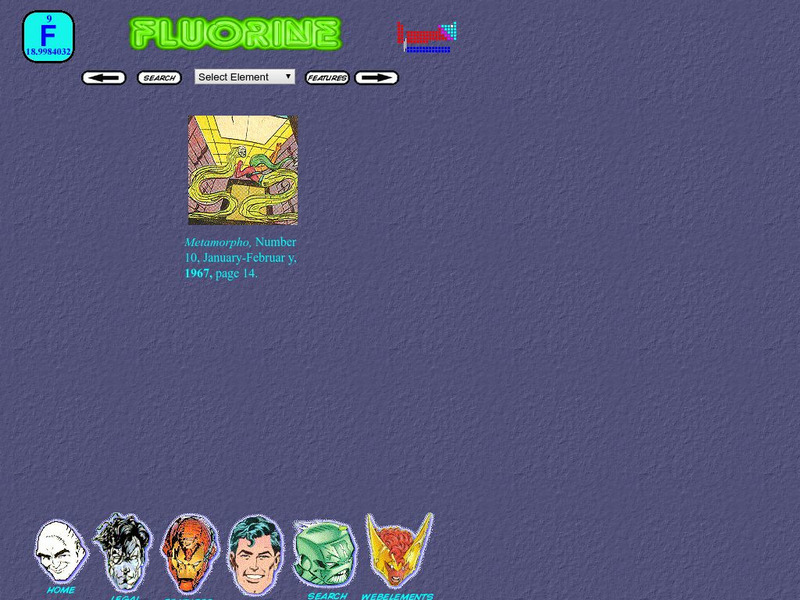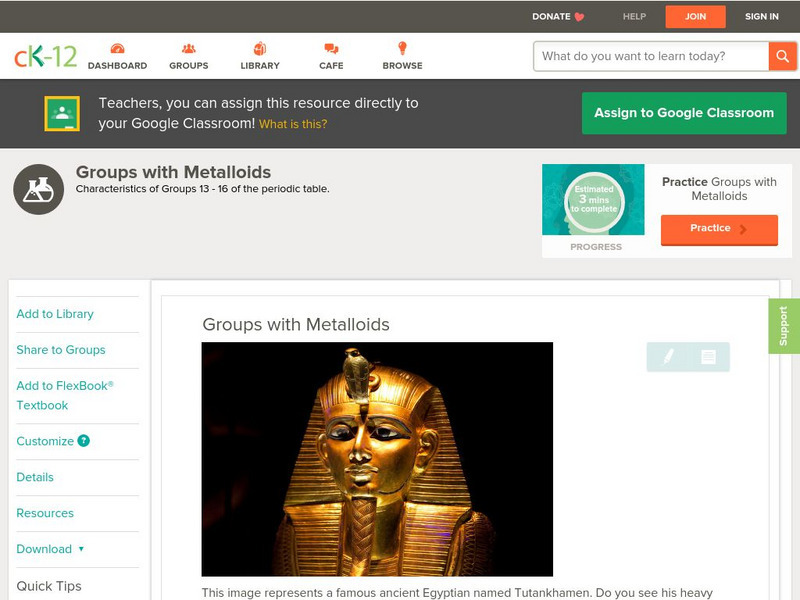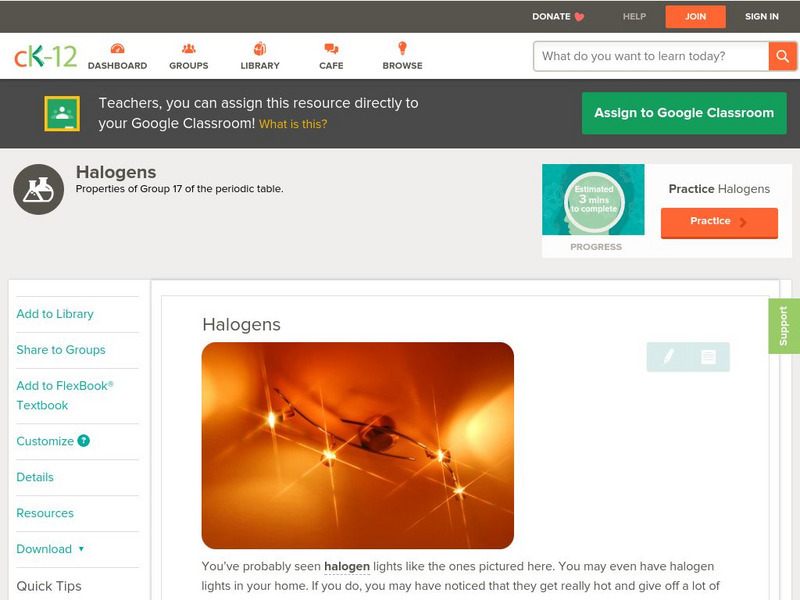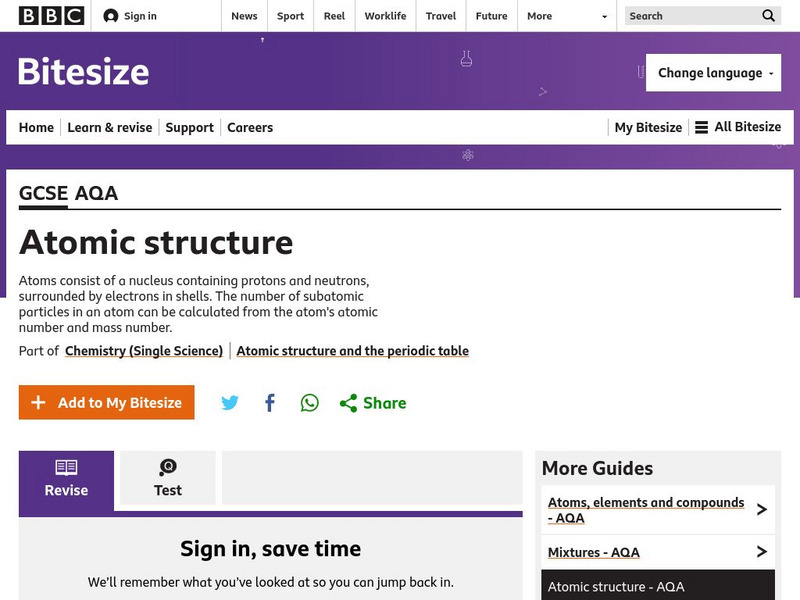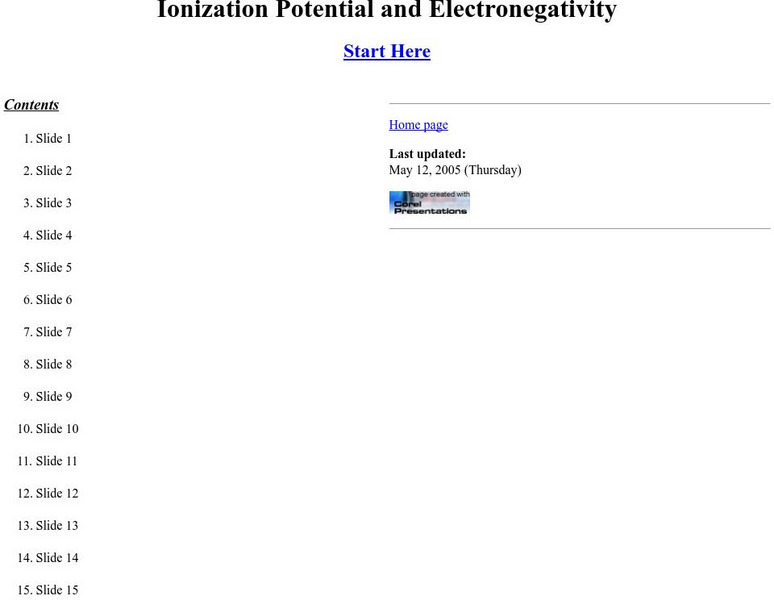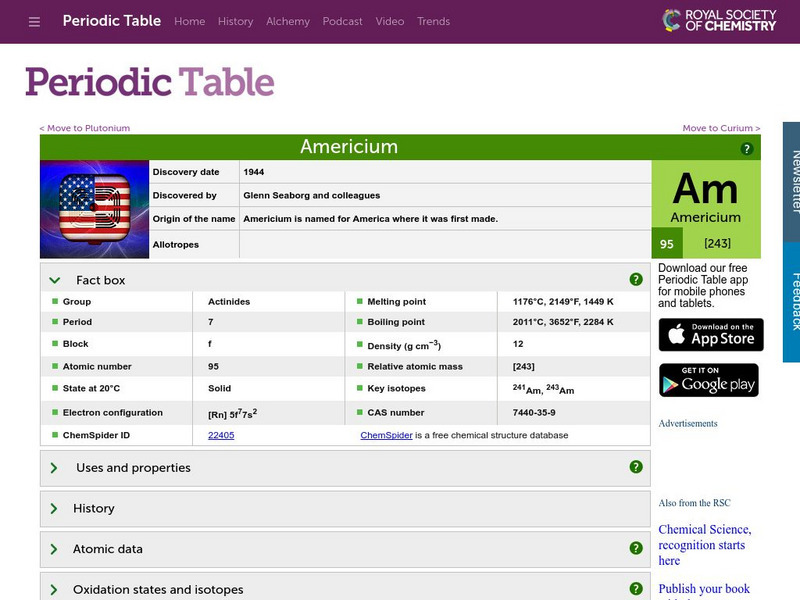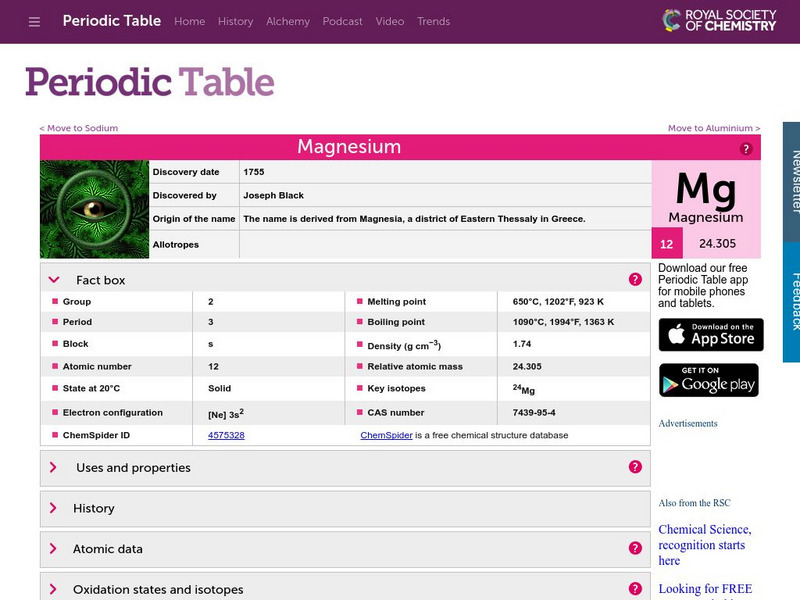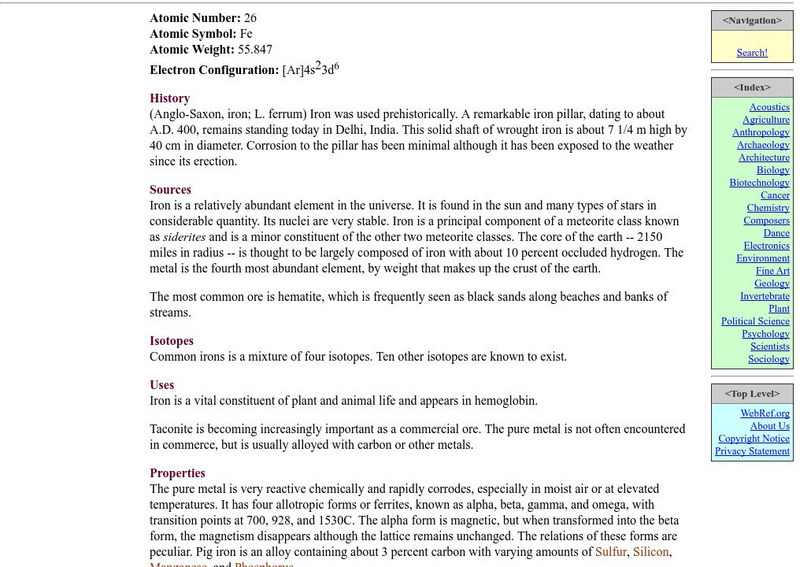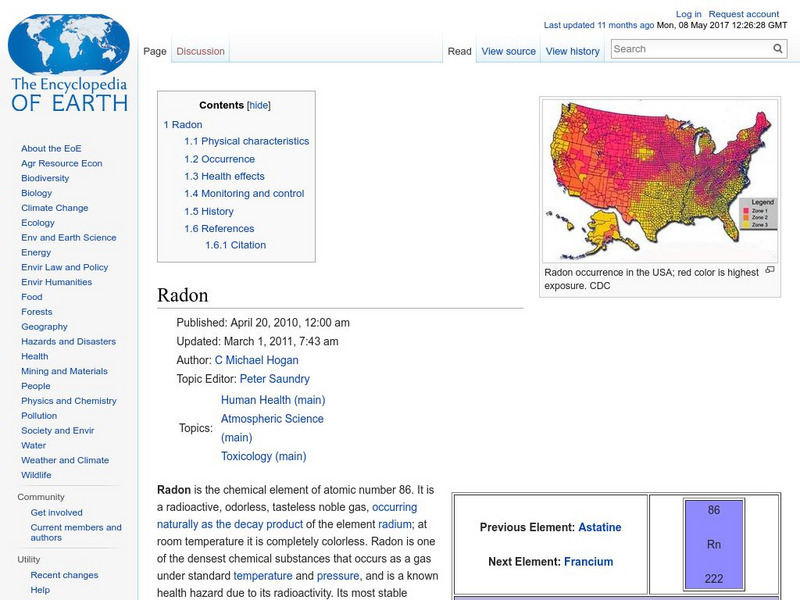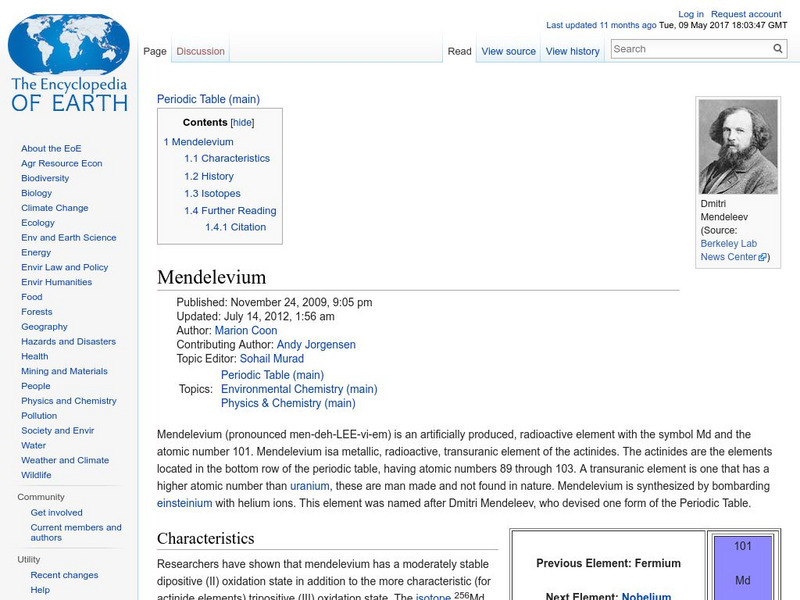Hi, what do you want to do?
ArtLex
Art Lex: Silver
This site provides numerous examples, and images, of artwork done in silver. Excellent images of ancient works of art.
Other
Divulgacao Da Ciencia/sulfur: Properties
This site contains a series of about a half-dozen pages on sulfur. Topics include; occurence, biological action, and properties.
PBS
Pbs Teachers: Origins: Back to the Beginning
Explore the elements found in the Periodic Table of Elements and what role some of them play in the universe. Test your knowledge of the elements and the organization of the table by completing a puzzle.
Wikimedia
Wikipedia: Dmitri Mendeleev
This overview of the life and accomplishments of chemist Dmitri Mendeleev discusses his upbringing and education. It also provides details on his creating the Periodic Table and his presentation to the Russian Chemical Society.
Educaplus (Jesús Peñas Cano)
Educaplus: Simbolos De Los Elementos [In Spanish]
Try to match the names of the different chemical elements and their symbols. You can check the results and how long it took you to match them.
Cosmo Learning
Cosmo Learning: Chemistry 1 A: General Chemistry
A collection of video lectures from a general chemistry course taught at the University of California, Berkeley. The course covers topics like stoichiometry, acid-base and solubility equilibrium, oxidation-reduction reactions, chemical...
Sophia Learning
Sophia: Chemical Reactions: Lesson 9
This lesson will present a basic understanding of the periodic chart of elements and how to predict chemical reactions based on given information. It is 9 of 9 in the series titled "Chemical Reactions."
Wisc-Online
Wisc Online: Lewis Dot Structures of Covalent Compounds
Short slide show provides basic information about drawing Lewis dot structures for covalent compounds. Starts with anatomy of the atom, and then shows the relationship between atomic particles and the Periodic Table of Elements. Offers...
Amethyst Galleries
Amethyst Galleries: The Mineral Native Antimony
This illustrated and thorough resource presents geological information on antimony and minerals containing antimony.
University of Kentucky
Chem Comics: Fluorine
A comic strip that features the element fluorine. Interesting, and a different approach to providing information.
CPALMS
Florida State University Cpalms: Florida Students: Atoms Make Up Everything
Learn how atoms are the building blocks of all living and nonliving things.
CK-12 Foundation
Ck 12: Physical Science: Groups With Metalloids
[Free Registration/Login may be required to access all resource tools.] Explores group 13-16 elements (metalloids) and their properties.
CK-12 Foundation
Ck 12: Physical Science: Halogens
[Free Registration/Login may be required to access all resource tools.] Disscusses group 17 elements (Halogens) and their properties.
BBC
Bbc: Gcse Bitesize: Atomic Structure
This lesson focuses on early ideas about the structure of an atom including John Dalton's plum pudding model and Ernest Rutherford's nuclear model. A link to a test is provided.
Other
Fusion Anomoly: William Crookes
A brief biography of Sir William Crookes, the British chemist and physicist who discovered thallium, invented the radiometer, and studied cathode rays. Includes related links.
School of Biological and Chemical Sciences, Queen Mary University of London
Queen Mary Univ.: Atomic Weights of the Elements 2017
This site from the Queen Mary University of London provides a list of the discovered atomic weights and elements up into the year 2017.
Ducksters
Ducksters: Chemistry for Kids: Elements Transition Metals
Kids learn about the transition metals of the periodic table. Which elements are in this group. Properties, similarities, and other facts.
Ducksters
Ducksters: Chemistry for Kids: Elements: Halogens
Explore the halogens of the periodic table. Learn about which elements are in this group and the properties, similarities, and other facts.
Upper Canada District School Board
Tom Stretton's Chemistry Pages: Ionization Potential and Electronegativity
Deepen your understanding of ionization potential and electronegativity in this illustrated presentation.
Royal Society of Chemistry
Chemical Society: Americium
A short site with information on the origin and discovery of this synthetic element.
Royal Society of Chemistry
Rsc: Magnesium
A concise page of basic information on magnesium. Information about its origin, discovery, and a description are provided.
Other
Web ref.org: Iron
A well written, easily followed entry on iron, its properties and compounds, as well as uses. Student friendly.
Encyclopedia of Earth
Encyclopedia of Earth: Radon
Information about the radioactive element, Radon, atomic number 86. Covers physical properties, atomic properties, how abundant it is on the Earth, details about its impact on human health, and about how it can be monitored.
Encyclopedia of Earth
Encyclopedia of Earth: Mendelevium
Information about the synthetic, radioactive element, Mendelevium, atomic number 101. Covers its discovery, physical and atomic properties, and details about permissible exposure.






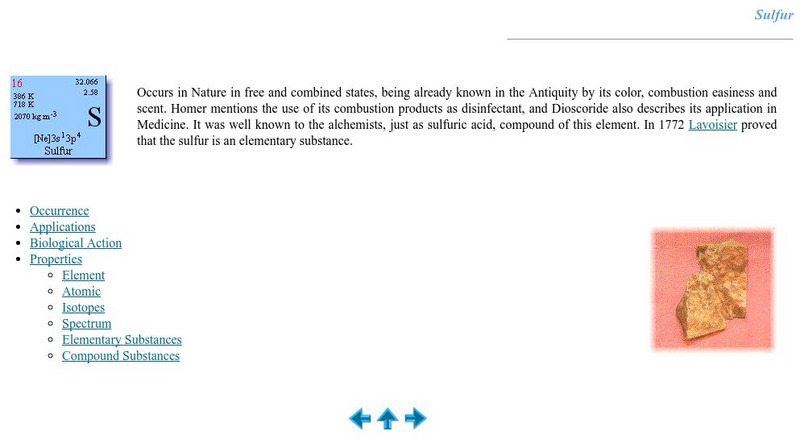
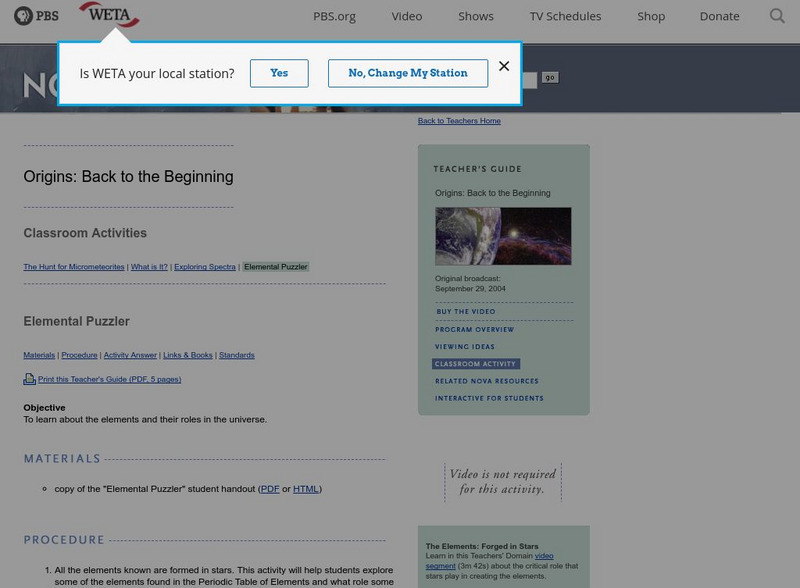
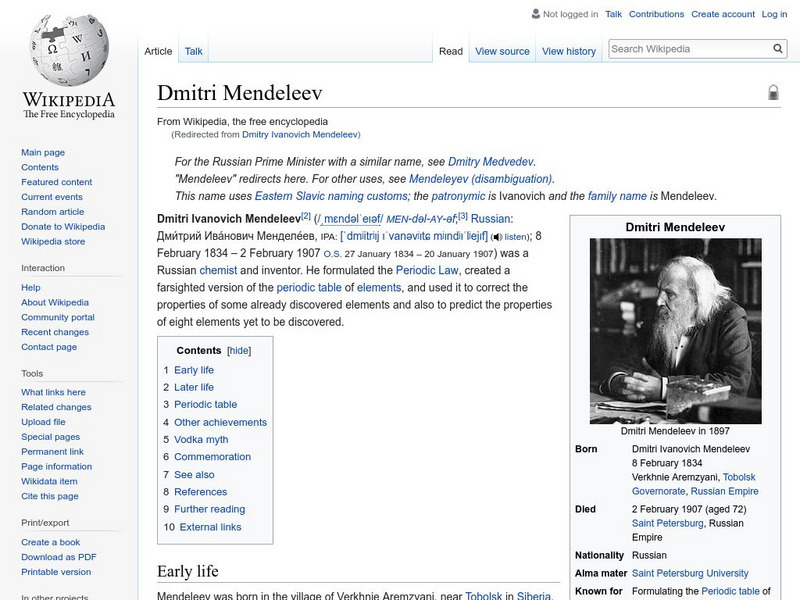
![Educaplus: Simbolos De Los Elementos [In Spanish] Activity Educaplus: Simbolos De Los Elementos [In Spanish] Activity](https://content.lessonplanet.com/knovation/original/120231-1280b6021966c967e3305e048b3ab0cf.jpg?1661605028)



